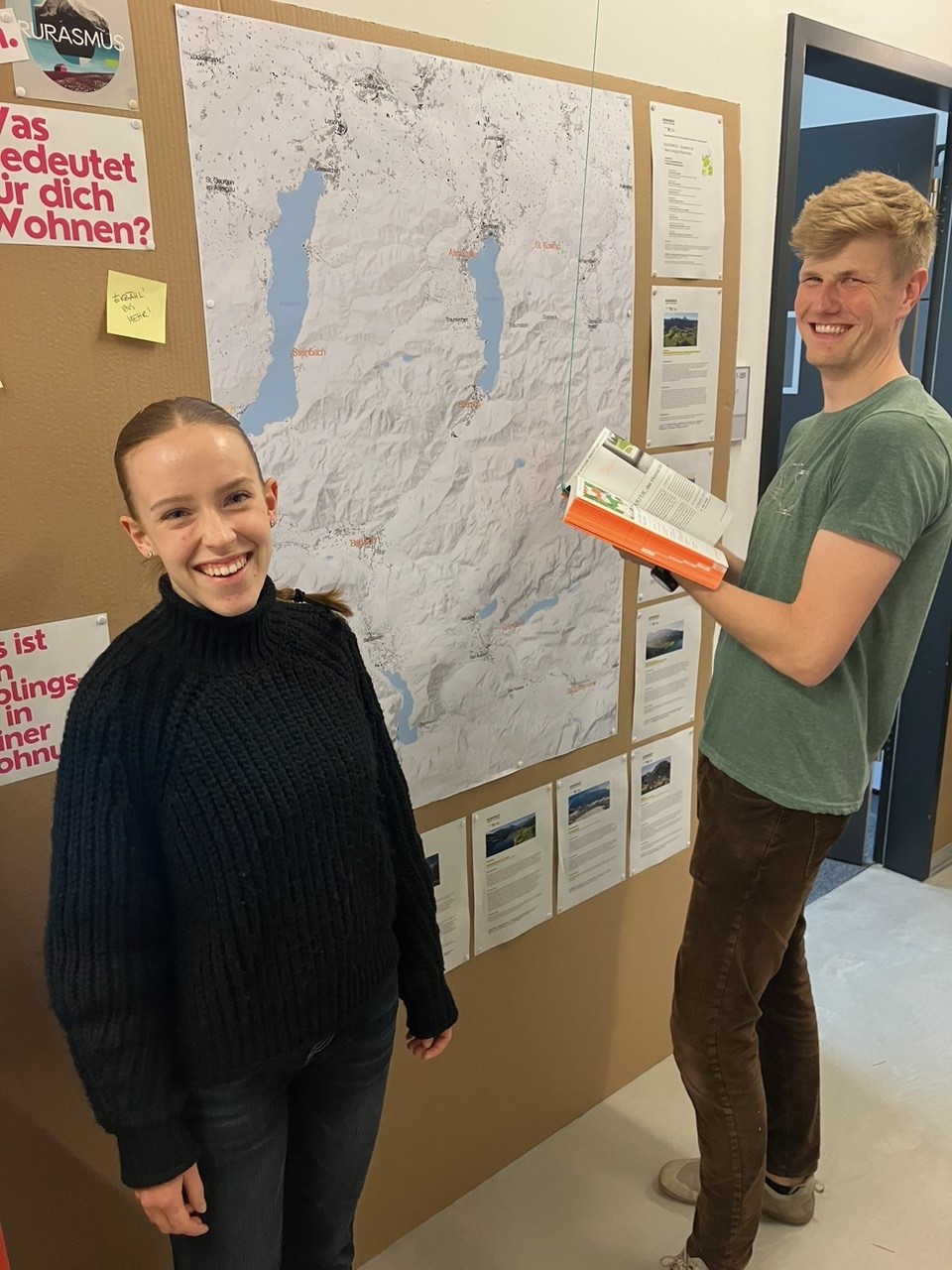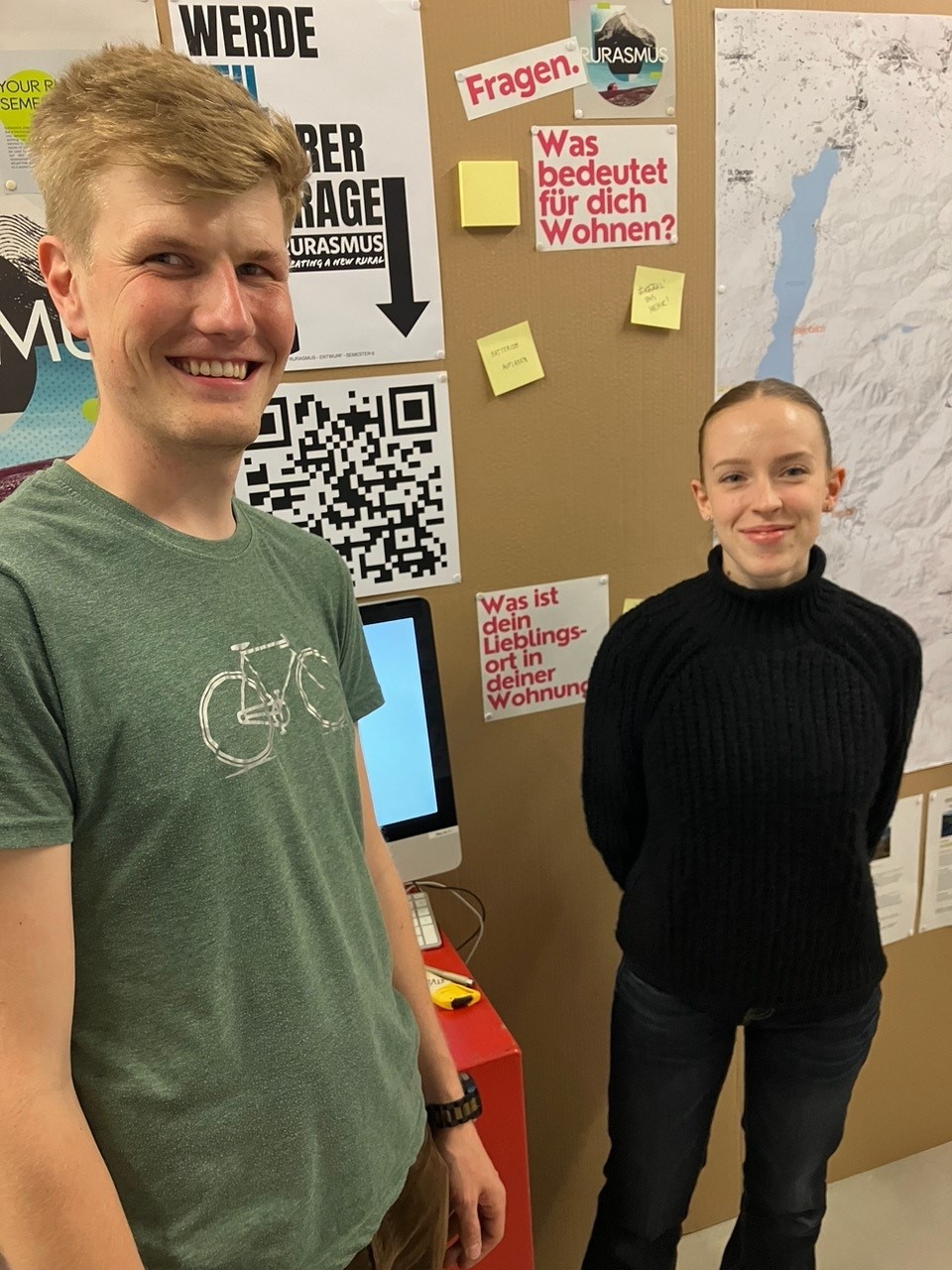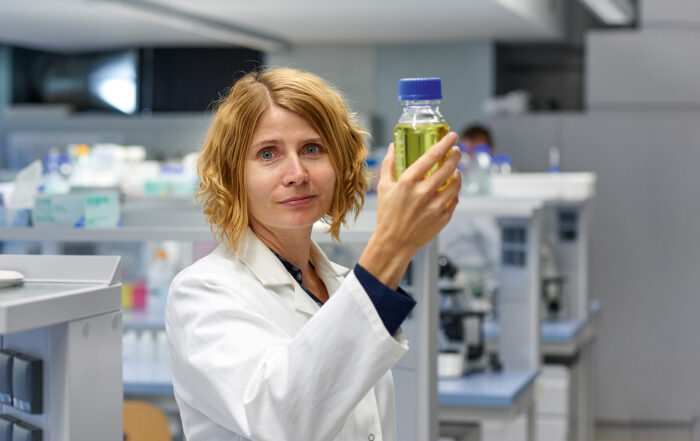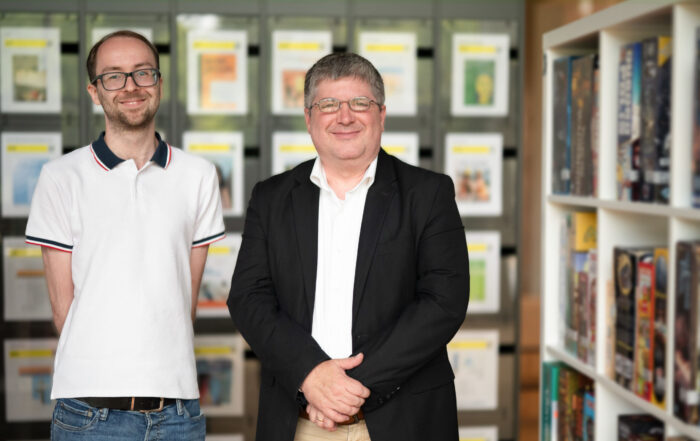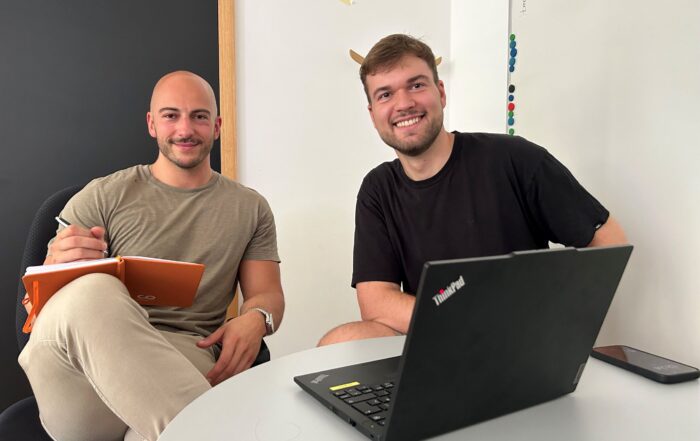16. May '24
Many students associate a semester abroad with vibrant metropolises and cultural epicenters.
But instead of the hustle and bustle of the big city, they can also choose the idyllic tranquillity of a cultural center and gain insights that are not available anywhere else: Students at Coburg University of Applied Sciences are working on housing concepts of the future in an “Aufs Land Woche” (“Into the Countryside Week”) of the RURASMUS program.
A university semester in the countryside is not just for nature lovers.
For eleven students at Coburg University of Applied Sciences in their 6th semester Bachelor of Architecture, it is also a teaching and design assignment.
As part of the “RURASMUS” program, they are currently spending five days in this year’s European Capital of Culture Bad Ischl in the Salzkammergut for a workshop week. The project name is made up of the words “rural” and “ERASMUS”, the EU’s funding program for student stays abroad.
However, instead of going to universities and colleges in large cities, the international students have deliberately chosen to go to the quiet countryside, because that is exactly where they find the problems they want to learn to solve: vacant buildings, multi-generational living, a lack of housing options or exploding housing costs, as well as tourism orientation in the out-migration area.
The project is called “New living in rural areas”.
Living where they move from
The task is to develop concepts on how living in the countryside must evolve in order to counteract demographic change, explains Mario Tvrtkovic, Professor of Urban Planning and Design at the Faculty of Design at Coburg University of Applied Sciences: “The Aufs-Land-Semester combines university education with practice and living in rural areas.”
Tvrtkovic has already been to the Salzkammergut with another group of students.
“It is an opportunity to improve life in rural Europe. I was very happy about the exchange with the students from the German and Austrian universities and colleges. The impressions and experiences of how we can achieve forward-looking transformations in the region were inspiring!”
Tvrtkovic is the initiator and chairman of the Research Institute for the Promotion of New Perspectives for Rural Europe.
Students at the heart of community life
Unlike traditional semesters abroad, students work closely with local communities and gain insights and opportunities that would otherwise not be available.
They are involved in community life and learn how ideas can be implemented quickly through their own initiative.
They deal with real problems in a practical project with the people affected.
This is also useful for the students back home, says Tarek Hansen: “As I live in the countryside myself, the topic of RURASMUS concerns me and I find it exciting how the students were received locally. I wanted to get to know my fellow students, the local people and the region and specifically to further exploit the potential of the sickle farm structures there and establish them in these new forms of housing.”
For Jana Will, the visit was an opportunity to practically analyze the topic of multi-generational living or rural living: “We were able to talk directly to the residents and contact persons on site and get to know the Salzkammergut. We want to examine existing structures for their opportunities and challenges and supplement and improve them with our design.”
Long-term rural study
It was the first – but not the last – visit for the Coburg students: the final presentation will take place in Bad Ischl on June 30, 2024.
The results of the workshop will be published there together with the students from other universities who also visited the Salzkammergut.
This cultural region is located in Austria, on the northern edge of the Alps.
With only 15,000 inhabitants, the spa town of Bad Ischl is the smallest cultural capital this year.
The title is awarded annually by the EU to three cities that are characterized by particular diversity and cultural creativity.
For the first time, however, several municipalities have joined forces to bear this title.
Eight of them are part of the RURASMUS project “Living the Future” and are therefore study locations for Coburg’s guests.
In addition to the spa town of Altmünster, these include Bad Mitterndorf, Ebensee, Gosau, Grundlsee, Steinbach am Attersee and St. Konrad.
Professor Tvrtkovic now hopes that this form of semester abroad will become an integral part of the course in the long term.
The prospect that the young architecture and design experts will soon be able to travel to rural communities throughout Europe opens up a wider range of educational, research and project opportunities.


